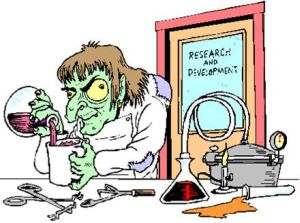 Patents are being sought after like never before. But patenting “business methods” are a relatively new phenomenon and many patent offices have limited experience in dealing with them.
Patents are being sought after like never before. But patenting “business methods” are a relatively new phenomenon and many patent offices have limited experience in dealing with them.Their relevance to the current global business environment is clear in the following hypothetical situation. Assume there is a bank called Sing Bank, which is introducing a new multi-million dollar instant cheque clearance service on the Internet. All legal, contractual and other requirements for the introduction of this wonderful new service has been resolved. With this, cheques get cleared within seconds.
This new service is introduced in a blaze of publicity and is successful, with thousands of new clients signing up for the service. Later, Sing Bank receives a notice that an ex-parte injunction has been granted to another bank requiring immediate closure of their Internet cheque clearance service, on the basis of patent infringement. The closure will represent a loss of billions of dollars.
Sing Bank goes into damage-control overdrive. It fires in-house lawyers and calls their indemnity insurers for support in case they are sued. Later, they realise, they failed to alert their lawyers to alert them to the opportunity to obtain a patent position for themselves. This demonstrates that companies which have traditionally operated in non-patent areas, such as financial services, must consider their patent and intellectual property position if they are to take their services onto a network, such as the Internet.
On the other hand, patenting business methods is an exception rather than the norm, therefore, databases may not include much literature on them. It is, therefore, in the applicant’s interest to declare known prior art and to supply copies if required. To achieve a patent grant, the application must satisfy a number of requirements:
#It must clearly specify and describe the invention, how it works, how you make it work and end with a series of claims that define the monopoly granted to the owner.
#The invention claimed must be patentable subject matter. In Europe, business methods are not patentable under the European Patent Convention (Article 52). This is being amended so that computer software is patentable, but business methods are still excluded. Therefore if it is intended to file a patent application in Europe for a business method, the specification must disclose the underlying technology so that the European application can be directed to that underlying technology.
#The invention must be novel. Mere automation is not considered as an inventive step. In addition, the invention must be industrially applicable.
Patents granted protect a business’ interest in an international scenario where there is a deluge of similar products being hawked. Business methods, which are easily duplicated, can be used against the original company. However, some steps can be taken to pre-empt such a move.
To minimise risk:
# Defensively publish any secret processes you have been using to prevent anyone being able to validly obtain a patent grant. The best form is, of course, defensive patent.
# Routinely monitor the patent activities of a competitor. It will alert you to potential risks, provide you intelligence as to what your competitors are doing or about to do, and provide new information on what new ideas are around.
To maximise benefits:
#Integrate the patent development into the business method development process.
#Investigate filing patent applications covering new business methods early and establish the business value of that patent.
#Treat all business methods as having patent potential.
#Create a position within the company having accountability for patent issues. i.e, an Intellectual Property Rights manager.
#Staff needs to be kept informed on potential opportunities and risks that patents on business methods provide, when any innovations are developed.
Written this for The Financial Express - a business newspaper.

No comments:
Post a Comment